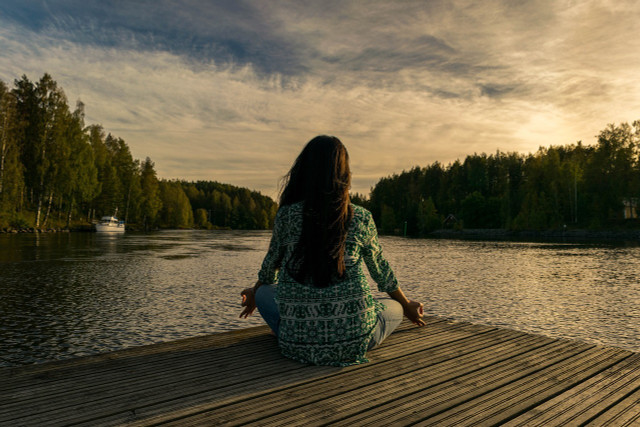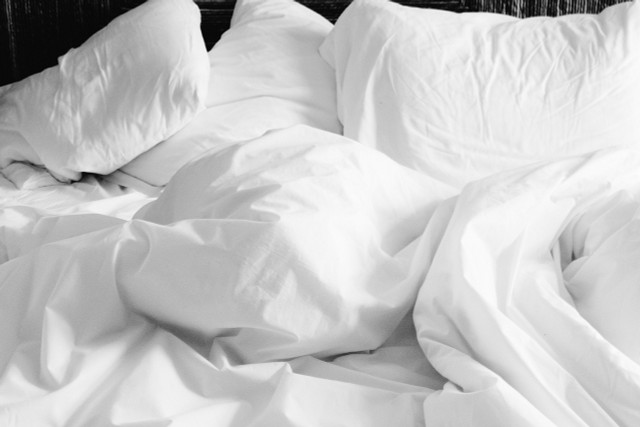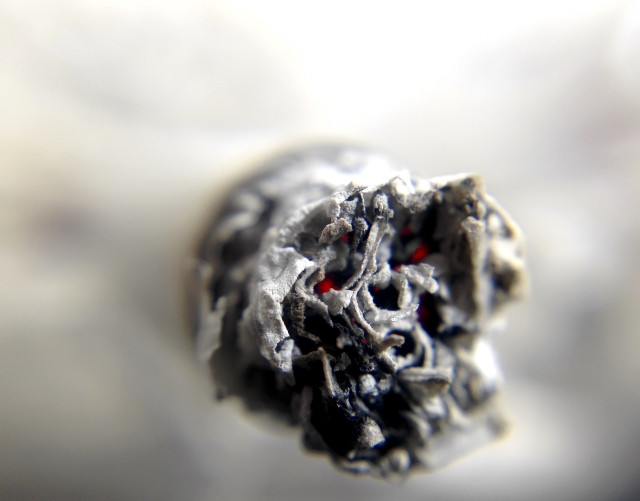
For more energy in everyday life, you don’t need expensive and sugary energy drinks. You can find out here what actually charges your energy storage devices in the long term.
Having enough energy in everyday life is an important factor for our quality of life. If, on the other hand, we often feel tired, stressed and drained, even going to the supermarket may seem very exhausting. A whole range of products such as energy drinks, dietary supplements or so-called superfoods promise to provide more energy.
However, such products will not solve your problem in the long term. Because how energetic we feel right now depends on a number of different factors. These include sleep, sufficient breaks and regeneration, nutrition, exercise, dealing with stress and our personal sense of happiness. What can increase your energy in the long term are above all certain habits and actions. You can find out exactly what these can look like in this article.
More energy through less stress

(Photo: CC0 / Pixabay / leninscape)
While stress can even have a positive effect on our well-being in the short term (the so-called eustress), the opposite is the case with chronic stress. This promotes depression and limits our cognitive abilities and memory performance. In order to have more energy, it is worthwhile to take a closer look at your own stress perception.
To counteract chronic stress, Harvard Medical School recommends:
-
Relaxation exercises such as yoga, tai chi, self-hypnosis or meditation
- relieving conversations with friends or family members
- a psychotherapy
- going to a self-help group
It is also important to reduce the workload if necessary. Overwork is one of the top reasons for low energy levels, according to Harvard Medical School. This doesn’t necessarily have to be just about the job. Social interactions in our free time can also partially aggravate our feeling of stress. You can find out more about this here: Leisure time stress can make you ill: How to protect yourself
You can find out what else helps to prevent stress or deal with stressful situations more resiliently in these articles:
- Reduce stress: 7 tips to slow down your life
- Time management: tips and methods for less stress
- Nature against stress: You should spend so much time in the countryside
More energy through better sleep

(Photo: CC0 / Pixabay / JayMantri)
Do you constantly feel drained and would like to have more energy in everyday life? Then you should see how your sleep is doing. Sleep disorders and permanent sleep deprivation can lead to reduced cognitive abilities and reduced performance. But too much sleep also has a negative impact on our energy levels. Because this has a similar effect on our brain as lack of sleep.
For most people, the optimal amount of sleep is between seven and eight hours. However, in some people it can be longer or shorter. Therefore, see this information only as a guideline and see for yourself how you feel after a certain amount of sleep.
If you are struggling with falling asleep or other sleep disorders, the tips in the following articles can help you:
- Insomnia: Tips for a peaceful night’s sleep
- Evening routine: Sleep better thanks to 12 tips for sleep hygiene
Movement for more energy
Regular exercise also recharges your energy stores. According to the Harvard Medical School, sport causes, among other things, dopamine to be released in the brain. This hormone improves our mood and can thus provide us with more energy. In addition, regular exercise often leads to better sleep.
Sport also helps to distract yourself from negative thought loops and thus clear your head and increase well-being.
In order to stay on the ball in the long term, you should above all choose a sport that you enjoy. It does not necessarily have to be intensive weight training or long endurance sessions. Regular walks or light yoga or Pilates workouts also have positive effects. You can get more tips here: Doing sports: How to find the right sport
Nicotine and alcohol: avoid if possible!

(Photo: CC0 / Pixabay / Shutterbug75)
According to Harvard Medical School, cigarettes and alcohol cause us to have less energy in the long term. Although nicotine initially wakes us up, it negatively affects our sleep and often triggers sleep disorders. Alcohol directly causes our energy levels to drop. For more energy, you should better avoid these remedies.
More energy: the right diet
In order to have energy in everyday life, we not only need breaks and exercise, but of course also food. According to nutritionist Danna Raphael, it is important to eat regular meals and not have too long hunger breaks during the day. Eat a full meal or a small snack about every three to five hours.
According to Harvard Medical School, several small meals a day make sense for another reason: many people feel tired after a large meal. A big lunch in particular often leads to an (after) midday slump. The exact reason for this has not yet been finally clarified scientifically, but it is probably related to the blood sugar level.
However, the following always applies: Do not rely too much on such general advice, but primarily listen to your own feelings of hunger and satiety. If you only eat two or three larger meals and always have enough energy, there is no reason to change anything.
Of course, what you eat also plays a role. Expert Raphael recommends a balanced diet of complex carbohydrates (e.g. in whole grains), protein and healthy fats. It is better to avoid simple carbohydrates, such as sugar and white flour, because they promote a sudden increase in blood sugar levels and a subsequent energy low. Heavily processed products are also not beneficial. You can find more tips for a healthy and balanced diet here: Balanced diet: 10 rules for everyday life
Read more on Techzle.com:
- Life without sugar: How to succeed with a sugar-free diet
- Constantly tired: These tips will help against tiredness
- Irritability: With these 5 tips you will become more relaxed